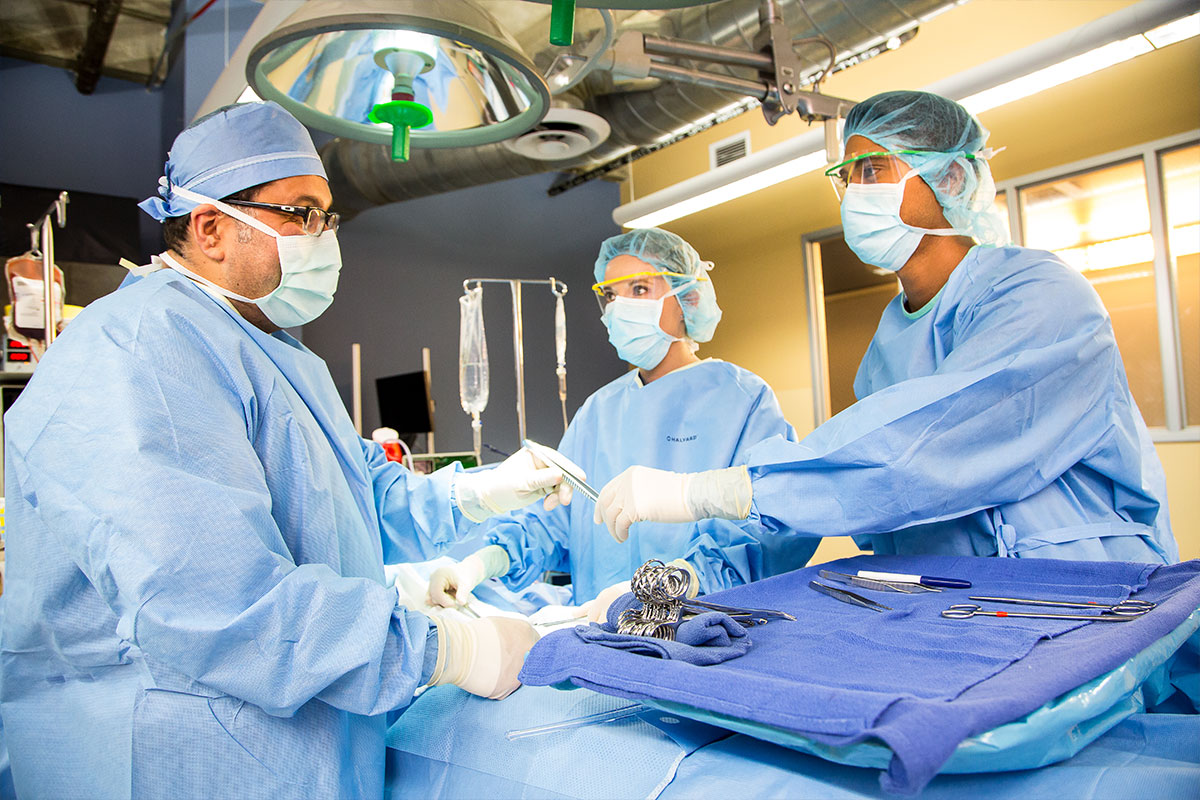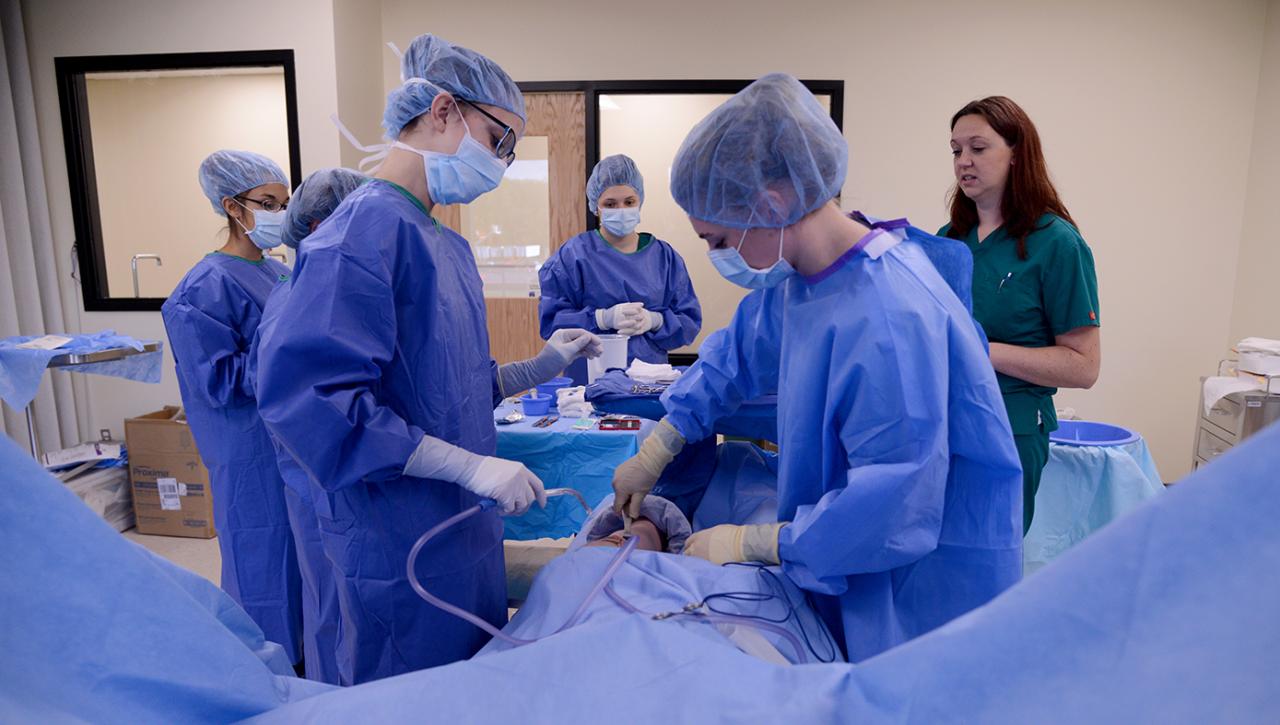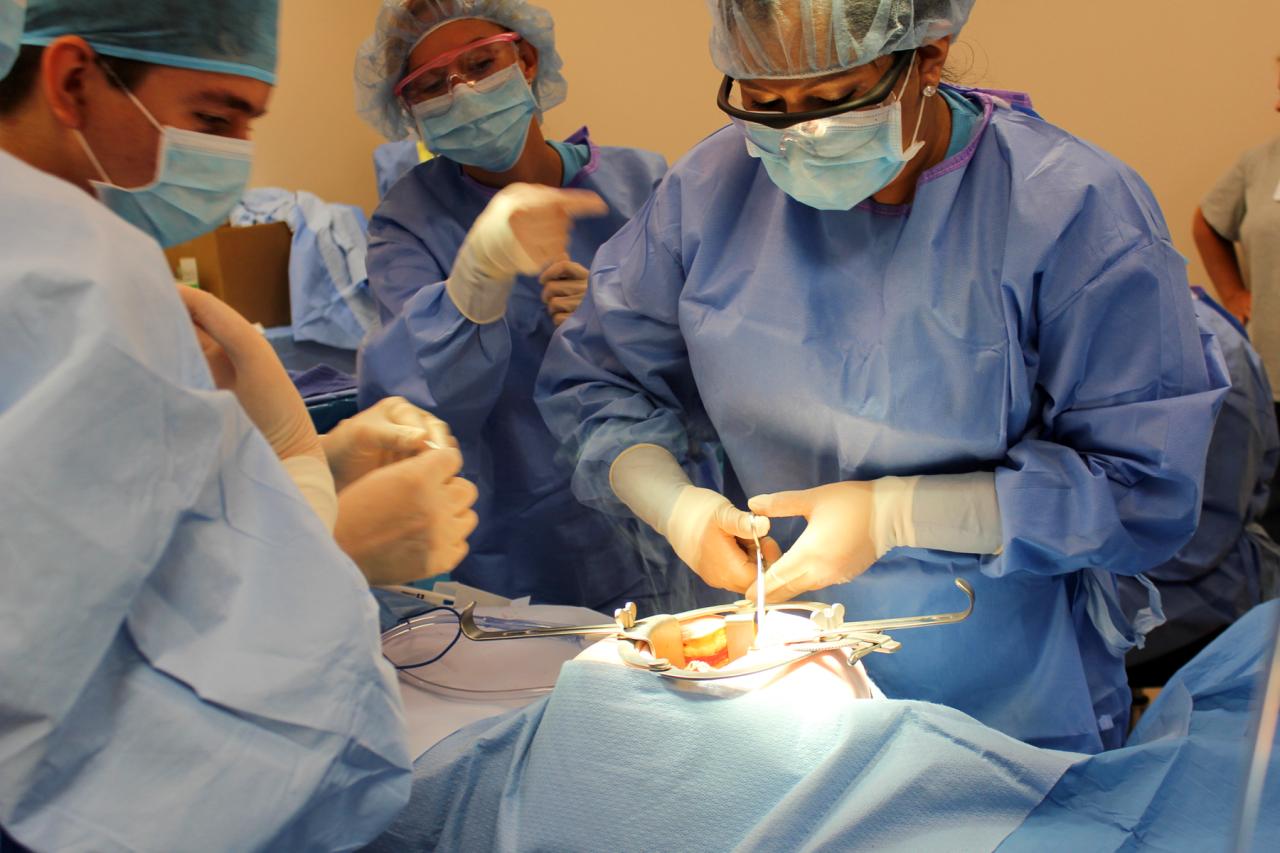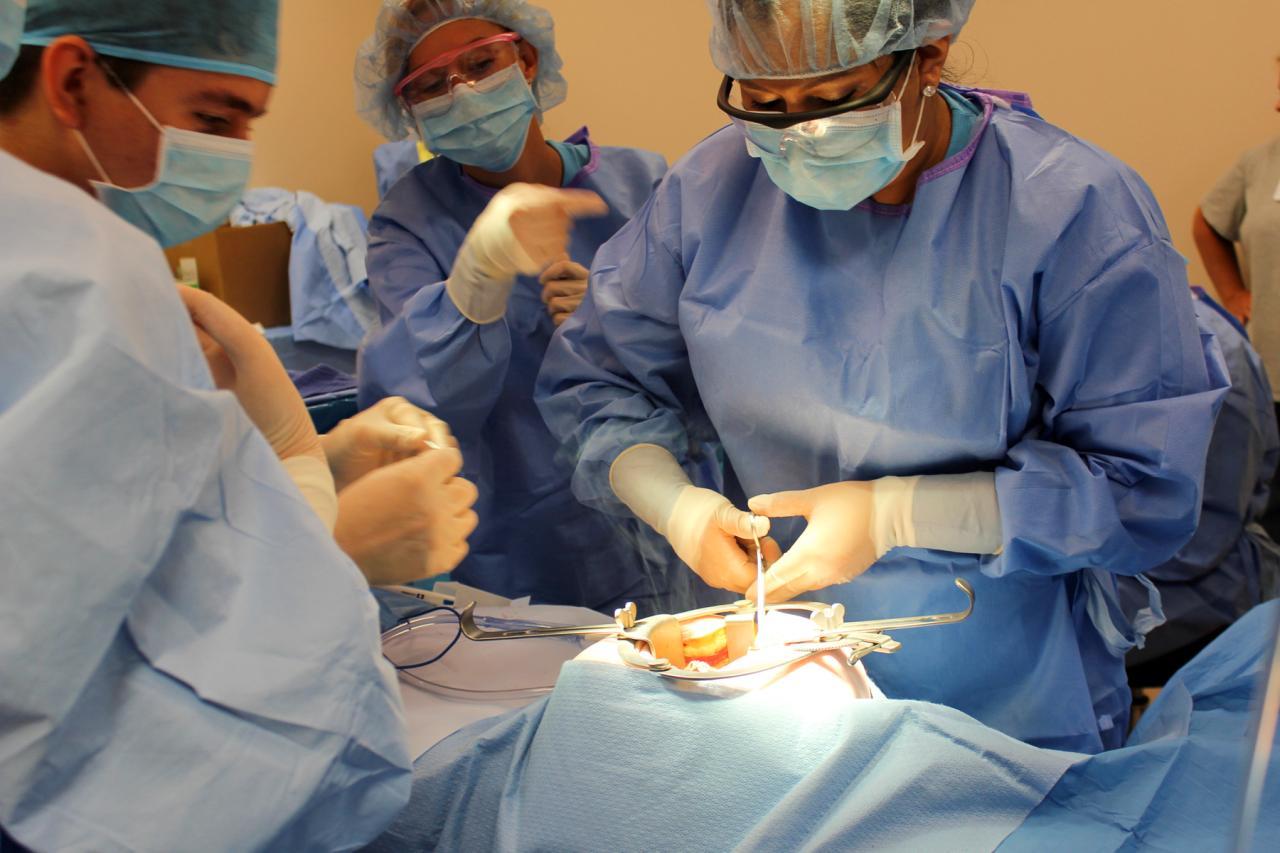Accredited surgical tech programs near me with clinical rotations offer a fantastic pathway to a rewarding career. This guide helps you navigate the process of finding the right program, comparing options, and understanding what to expect during your training. We’ll cover everything from accreditation standards and clinical rotations to curriculum details, career prospects, and the application process. Let’s explore how to find the perfect fit for your future in surgical technology.
Finding the right accredited surgical tech programs near me with clinical rotations is key to a successful career. To get started, you’ll want to check out all the available options; a great place to begin your search is by looking at the many different surgical tech programs near me. Remember, hands-on experience through those clinical rotations is crucial, so make sure any program you choose offers them as part of the curriculum.
This will give you the edge you need when entering the job market after graduation.
Choosing the right surgical technology program is a big decision. Consider factors like program length, accreditation, clinical rotation opportunities, and the program’s curriculum. Researching different programs and comparing their offerings will help you make an informed choice that aligns with your goals and learning style. This guide aims to simplify that research process and empower you to make the best decision for your future.
Nationally Accredited Surgical Technology Programs: Accredited Surgical Tech Programs Near Me With Clinical Rotations
Choosing the right surgical technology program is a crucial step in launching your career. This guide provides information on accredited programs near you, focusing on accreditation, clinical rotations, curriculum, career prospects, admissions, and student support.
Finding accredited surgical tech programs near you with clinical rotations is key to a successful career. You’ll need hands-on experience, and a good way to visualize the precision needed is by watching the incredible aerial footage captured by a high-quality drone camera. Think of the intricate movements – that same level of skill translates directly to surgical procedures.
So, research those programs carefully; your future patients will thank you!
Program Accreditation and Recognition
Accreditation ensures a program meets established quality standards. Nationally recognized accrediting bodies, such as the Commission on Accreditation of Allied Health Education Programs (CAAHEP) and the Accreditation Review Council on Education in Surgical Technology and Surgical Assisting (ARC/STSA), provide rigorous evaluations. Accredited programs offer a structured curriculum, qualified instructors, and access to clinical rotations, increasing your chances of employment.
The verification process involves a comprehensive review of the program’s curriculum, faculty qualifications, facilities, and clinical affiliations. Programs must meet specific standards related to didactic instruction, hands-on training, and clinical experience to achieve accreditation.
Finding accredited surgical tech programs near you with clinical rotations is a great career move, requiring dedication and hands-on experience. If coding interests you, consider a different path; check out resources like affordable full stack developer bootcamps with job placement to explore that option. But if the operating room is your calling, focus your search on those accredited surgical tech programs to secure your future.
| Program Name | Location | Accrediting Body | Program Length |
|---|---|---|---|
| Example Program A | City, State | CAAHEP | 12 months |
| Example Program B | City, State | ARC/STSA | 18 months |
| Example Program C | City, State | CAAHEP | 12 months |
| Example Program D | City, State | ARC/STSA | 18 months |
Clinical Rotation Aspects
Clinical rotations are an integral part of surgical technology education, providing hands-on experience in a real hospital setting. Students work alongside experienced surgical technologists, gaining practical skills and exposure to various surgical specialties.
Common clinical rotation sites include hospitals, surgical centers, and physician’s offices. Students may rotate through various surgical specialties, such as general surgery, orthopedics, cardiovascular surgery, and neurosurgery.
Rotations typically last several weeks to months and follow a structured schedule, allowing students to gain proficiency in different surgical procedures and settings.
Sample Clinical Rotation Schedule (Example):
- Week 1-4: General Surgery
- Week 5-8: Orthopedics
- Week 9-12: Cardiovascular Surgery
- Week 13-16: Neurosurgery
Program Curriculum and Structure

Surgical technology programs typically include a combination of didactic instruction and hands-on training. Didactic courses cover anatomy, physiology, surgical procedures, sterilization techniques, and medical terminology. Hands-on training involves practicing surgical skills in a simulated lab environment.
Typical Course Sequence:
- Surgical Anatomy and Physiology
- Surgical Procedures and Techniques
- Sterilization and Infection Control
- Medical Terminology and Documentation
- Surgical Instrumentation and Equipment
- Clinical Rotations
Students learn to use a wide range of equipment, including surgical instruments, lasers, endoscopes, and monitoring devices.
Finding accredited surgical tech programs near you with clinical rotations is key to a successful career. It’s a demanding field, requiring dedication and hands-on experience, unlike say, becoming a full stack developer , which has a different skill set entirely. But once you’ve secured your spot in a program with solid clinical rotations, you’ll be well on your way to a rewarding career as a surgical technician.
| Skill | Competency |
|---|---|
| Surgical Instrument Handling | Proper identification, cleaning, and sterilization of surgical instruments. |
| Sterile Technique | Maintaining a sterile field during surgical procedures. |
| Surgical Assisting | Assisting the surgeon during various surgical procedures. |
| Patient Care | Providing pre-operative and post-operative care to patients. |
Career Opportunities and Job Prospects

Graduates of accredited surgical technology programs have excellent job prospects. The demand for surgical technologists is expected to grow steadily, driven by an aging population and advancements in surgical techniques.
Potential career paths include working in hospitals, surgical centers, physician’s offices, or research facilities. Surgical technologists can specialize in various surgical areas, such as cardiac surgery, orthopedics, or neurosurgery.
Salary expectations vary depending on experience, location, and specialization. Professional organizations, such as the Association of Surgical Technologists (AST), provide resources and support for career advancement and continuing education.
Continuing education opportunities include workshops, conferences, and online courses to stay updated on the latest surgical techniques and technologies.
Program Admission Requirements and Application Process
Admission requirements vary among programs but typically include a high school diploma or equivalent, a minimum GPA, and completion of prerequisite courses. The application process generally involves submitting an application form, transcripts, letters of recommendation, and possibly taking an entrance exam.
Step-by-Step Application Guide (Example):
- Research and select programs.
- Check admission requirements.
- Gather required documents.
- Complete and submit the application.
- Attend an interview (if required).
- Accept admission offer.
Financial aid options, such as grants, loans, and scholarships, are often available to eligible students.
Student Support Services and Resources, Accredited surgical tech programs near me with clinical rotations
Accredited programs offer various support services to help students succeed. These services may include academic advising, career counseling, tutoring, mentoring, financial aid assistance, and resources for students with disabilities.
List of Student Resources (Example):
- Academic Advising
- Career Counseling
- Tutoring Services
- Financial Aid Office
- Disability Services
- Student Clubs and Organizations
Program Facilities and Resources
Well-equipped facilities and resources are essential for effective surgical technology education. State-of-the-art labs provide students with hands-on experience using modern surgical equipment. These labs often include simulated operating rooms, allowing students to practice surgical techniques in a safe and controlled environment. The equipment may include laparoscopic simulators, surgical instrument sets, and various types of monitoring devices. The functionality of this equipment allows students to develop proficiency in instrument handling, sterile technique, and various surgical procedures.
The learning environment, including the lab space and classrooms, significantly impacts student success. A supportive and engaging environment fosters learning and collaboration among students. The size and scope of clinical rotation sites also contribute to the overall quality of education. Larger, more diverse sites offer students exposure to a wider range of surgical specialties and procedures.
Ultimate Conclusion

Landing your dream job as a surgical technologist starts with selecting the right accredited program. By carefully considering program accreditation, clinical rotation experiences, curriculum, and career prospects, you can confidently embark on this exciting career path. Remember to thoroughly research your options and don’t hesitate to reach out to program advisors for any questions. Your future in surgical technology awaits!
Popular Questions
What is the average salary for a surgical technologist?
Salaries vary by location and experience, but expect a competitive starting salary with potential for growth.
How long does a surgical technology program typically last?
Program lengths vary, but many are completed within 1-2 years.
Are there financial aid options available?
Yes, many programs offer financial aid, scholarships, and loans. Check with individual schools for details.
What kind of equipment will I be trained to use?
You’ll learn to use a wide range of surgical instruments, equipment, and technologies, including advanced surgical tools and monitoring systems.
What is the job outlook for surgical technologists?
The job outlook is generally positive, with a growing demand for skilled surgical technologists.
